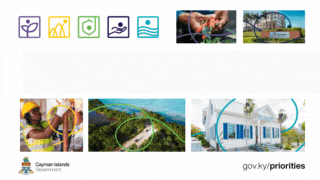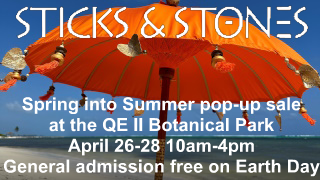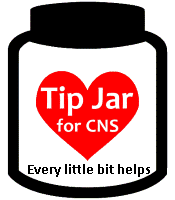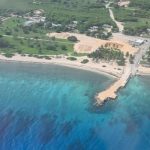Discrimination against local commercial fishermen
 Seagem writes: In 2014 the Cayman Islands Shipping Registry was happy to accept the registration of some local commercial fishing boats, charging $150 per year for the privilege. Even though a new annual fee was already in the planning stages for a Casualty Investigation Fund, which would jack up the overall cost by 50% the following year, it was not disclosed to new registrants at the time.
Seagem writes: In 2014 the Cayman Islands Shipping Registry was happy to accept the registration of some local commercial fishing boats, charging $150 per year for the privilege. Even though a new annual fee was already in the planning stages for a Casualty Investigation Fund, which would jack up the overall cost by 50% the following year, it was not disclosed to new registrants at the time.
As far as CI Shipping is concerned, a vessel is either a pleasure boat or a merchant vessel, as nobody bothered to pay any attention to the two dozen commercial fishing vessels locally owned in order to create a separate category for them.
So, in 2015 the new bill came out of the blue from CI Shipping with a new $75 fee, bringing the total to $225. But if you own a pleasure boat up to 500 gross tons worth $20 million plus, CI Shipping will only charge you a $30.00 fee for the Casualty Investigation Fund. By comparison, most local commercial vessels are 10 to 20 gross tons and cost between $30,000 and $60,000, yet pay 2.5 times more, while other shipping registries, such as that of Dominica, charge only 4 cents per ton, with a minimum of US$25.00.
So, it’s quite clear that the CI Shipping is discriminating against local commercial fishermen and has displayed no intention to remedy this gross injustice. Emailed complaints were sent to the higher echelons of the government to no avail. The bureaucratic answer from CI Shipping was: “Due to the classification (fishing vessel for profit), this falls within the “For Merchant Ships of any tonnage” category and therefore charged US$75 per vessel for the Annual Casualty Investigation Fund.”
As mentioned earlier, the simple solution is to create a new classification to accommodate the local commercial fleet and drop the registration fees even further to a more accommodating $50 per year, then do away with the Casualty Fund fee retroactively to its creation in 2015, since it mostly concerns large merchant vessels.
While the CI government has bent backwards to assist the agriculture and tourism industries in Cayman, it has done absolutely nothing to help the fishing industry, which was once the backbone of the local economy. The local commercial fishing fleet currently supplies all the supermarkets and restaurants with most of the freshly caught snappers, groupers, wahoo and tuna consumed on island. This very healthy, hormone, antibiotic and radiation free natural seafood is enjoyed by most tourists and resident alike – at least for now.
Cayman is surrounded by deep waters and local fishing vessels have no choice but to poach fish on the shallower banks of Cuba, Honduras, Colombia and Nicaragua, covering large distances on each trip. Several local vessels have been caught by the coast guards of these countries and the owners have had to pay exorbitant fines and fees to recover their vessels and free the crews from jail.
Unless the CI government negotiates fishing rights for Cayman commercial fishermen with these countries, most of these freshly caught fish brought on island by the local commercial fishermen will soon be replaced by more expensive imported fish from the oil tainted waters of the Gulf of Mexico or contaminated fish that glow in the dark (thanks to Fukushima) caught off the West coast of the USA.
Category: Viewpoint



































FYI, here is a map of the Caribbean EEZ’s.
http://www.environmentmagazine.org/sebin/n/n/caribbean-islands-photo1.jpg
As can be seen, it’s all deep waters around Cayman with no fishing banks except for the 12 and 60 miles banks, which cannot support any sustained production.
So, I’ll let you guess where all the snappers consumed in the Cayman Islands supermarkets and restaurants, since the establishment of the Caribbean EEZ, come from…
For the purists, there is always the option of importing snappers from the Gulf of Mexico post-BP well disaster for $16.99 per pound, plus shipping:
https://divinefishandmeat.com/product/gulf-wild-american-red-snapper/
…Or salmon and tuna from the US Pacific coast:
http://www.zerohedge.com/print/573723
The exclusive economic zone (EEZ) of a country extends to 200 miles, or midway between 2 or more countries’ EEZ. So, Cayman’s exclusive economic zone only extends to about 70 miles, before it encounters Cuba, Honduras and Nicaragua EEZ’s…
Basically, Cayman has no fishing grounds other than the 12 and 60 miles banks, which clearly cannot accommodate the weekly demand of some 10,000 pounds of fresh fish…
In the old days, Caymanian boats used to catch turtles in Nicaraguan waters, presumably by mutual agreement at governments level. Such agreements are what is needed for the Cayman commercial fishing fleet to continue operating in a legal fashion, rather than having to take chances in other countries’ EEZ…
If this doesn’t happen, the local fishing industry will not last another 10 years and imported fish of dubious quality will be the only offering at much higher prices…
There is no money in artisanal commercial fishing and this is why the local fleet should be recognized as a separate entity by the Cayman Registry and given every possible financial break in fees, the same as is enjoyed by agriculture, the other primary industry of Grand Cayman. It makes no sense that small local fishing vessels be recognized as ” Merchant Ships of any tonnage” and charged much higher fees than a luxury pleasure vessel 10 times the size and hundred times the value…
The retail price of fish is determined by the supermarkets, which are the largest purchasers at wholesale prices. Their interest is to keep prices as low as possible, as importing quality fresh fish is much more expensive. If they agreed to pay $5.00 per pound, which is the wholesale price for snapper in the US, the industry would be much more viable, but the retail price would then increase by $1.00…
Fishing is essentially dictated by the weather: when the seas are rough, mostly in winter, fishing vessels stay in port. Then they all go out at around the same time when it calms down and return to port within days of each other, causing an oversupply and price discounting by some, as this is a perishable item. Because importing quality fresh fish is much more costly, none is available at the supermarkets during times of bad weather…
After all, this is Cayman’s future fresh fish supply which is at stake if nothing is done about these issues…
Dear Frank / Seagem / Anon @10:41 ?
I’m confused. Is your beef with a government fee of $75 a year (or 15 pounds of snapper a year by your own figures. Hey, that’s almost 0.7 ounces of snapper a day!) or is it with your seeming desire to engage in Illegal, Unregulated and Unreported (IUU) fishing in the waters of our neighbors?
If its the latter, then please post the names of your supermarket customers so I can make sure that the fresh fish my family eats has been caught in a legal, responsible and sustainable manner.
I don’t want to have to explain to my grandchildren what a fresh fish is by having to rely on Google Images…..
Cayman has exclusive fishing rights out to 200 miles or half way to Cuba etc. What is done to regulate who fishes out there?
200 miles?! I can’t believe that’s true
Are you serious you have admittedly confirmed that you poach in other countries, god I hope that these countries read this and catch you the next time you are in their waters. I have no sympathy for you. Perhaps this should be forwarded to the sea shepherd guys and see what they have to say about you poaching.
I wonder
Do you eat fish?
i was told that one of those commercially boats have been seized by the honduran government? yet honduran registered fishi g boats can vome here and sell fish? where is the govt on that?
Just pay the fee and catch some fish. The market has been completely empty the past few times I’ve tried to go. While you’re at it get a phone number too and clean up the place a bit. Also, no more buying fish from giant Honduran boats and passing them off as local. Basically, quit messing around and fish.
Did some say “entitlement”?
These comercial fishermen are their own worst enemy. They don’t realize that literally everyone on the planet likes to eat fish. The demand for it is huge! They should reduce their catches and double the price of fish. It will still sell. Instead of banding together to demand higher prices they under cut each other and sell their catch for dirt cheap, which only hurts themselves. I have never met a wealthy fisherman and it because they are determined to catch as much as possible and sell it for as little as possible just to get rid of it! Quit flooding the market and demand more for your hard earned catch! Wake up guys! People are hooked on your fish! Make them pay up!
Maybe you should register in Dominica then. It would be interesting to see what the other world class registers like Cayman, i.e. Panama, Marhasall Islands and Bahamas, charge and not just this no name register like Dominica.
I just cannot muster a speck of sympathy for poachers, sorry.
Wow….. really!!! You vex about 75, I mean 75 dollars to operate a business.
Imagine I own a business here and I have to 375 for business liscence, 600 for car liscence, 2700 for liability insurance, work permit, pension and medical monthly.
Almost all the boats here have expats working the boats and they don’t require work permit nor require pension and medical for employees. Also these boats are fishing illegally in other country waters and you want the Cayman Islands government to support you. It sound like this is a unregulated industry and the government should tighten the loose end on this industry and get guy harvy involved…. then I bet you would regret writing a post and complaining about a $75 fee..
What government should do is looking into helping small business with under 10 employees.
As far as I know and have been told the Cayman Ship Registry has a minimum charge for ships registered with them which is US$400 a year and has for a number of years discounted this fee to US$150 per year for local boats. So for you to suggest that you are being discriminated against is unfair, considering that local boats are receiving more than a 50% discount on the annual fees already. I believe that the work which the shipping registry performs both locally and overseas is commendable and they should be recognized for this, rather than criticizing them and airing your personal grievance because you don’t want to pay an additional US$75 a year to registery when you are already paying well below the US$400 a year which others are currently paying.
Sounds like you may be working at CI Shipping…
Originally, when CI Shipping /MACI was formed, the Cayman lawmakers insisted that local fishing boats be given a break in fees. However, when the new fee was brought in, CI Shipping failed to continue with the original intent of giving a break to locals and applied the full fee, even though foreign pleasure vessels of much higher value pay a much lower fee.
The Casualty Investigation Fund was essentially created to investigate accidents happening on large merchant marine ships – not on local fishing vessels, so why should they pay this fee at all?
CI Shipping is mostly staffed by British expats who do not have the interests of local fishermen at heart: Caymanian commercial fishing vessels cannot logically be considered “Merchant Ships of any tonnage”, since they travel to the high seas, catch fish and always return to the same port – yet they are unwilling to create a separate category and fee structure for these vessels.
So I guess that accidents only happen on large merchant vessel and that local vessels are immune to accidents… what a goofball.
Doubtful that this will be taken seriously by those in power…
So what is this rant about? Having to pay a fee for a COMMERCIAL (makes a profit) vessel or wanting the Government to give more to those who think they’re entitled. And you admit to poaching in other countries! Gad, what are you like! Pay the fee and keep your trap shut. Welcome to the real world.
Two hundred a year doesn’t seem that high to me, as for the untainted waters I think you would need to consider tides and the fact that fish migrate, people litter in the ocean, the dump etc. etc. etc.